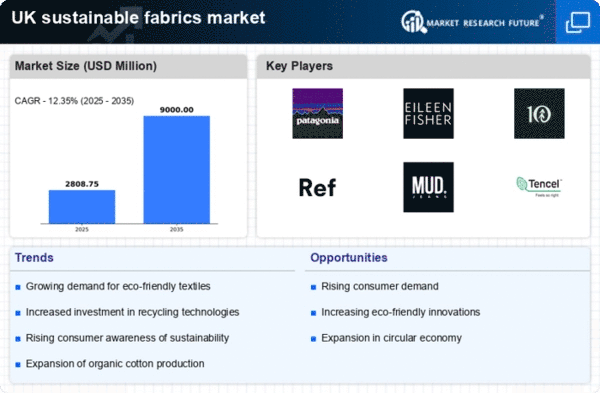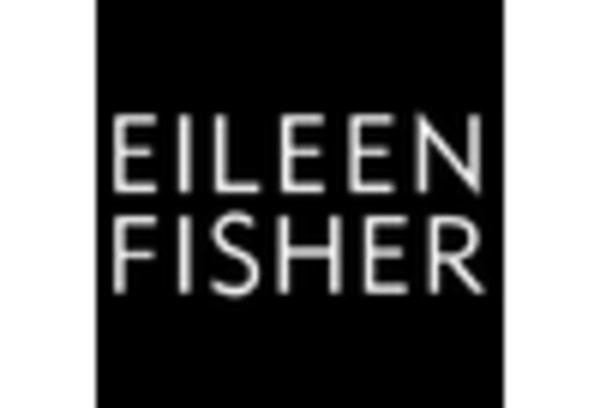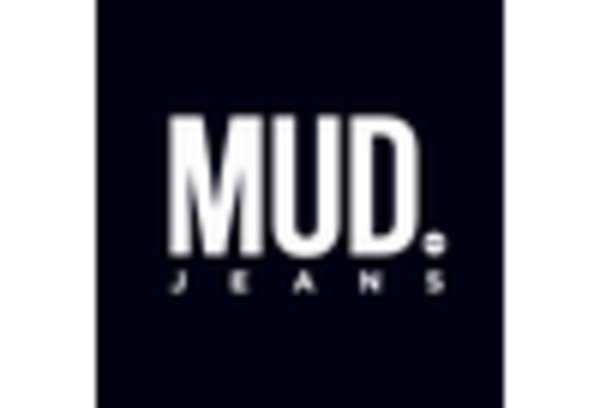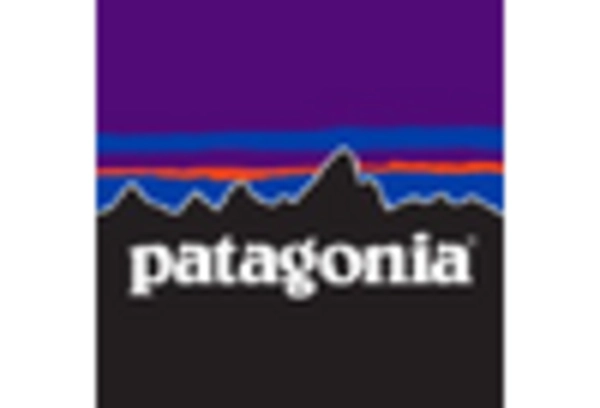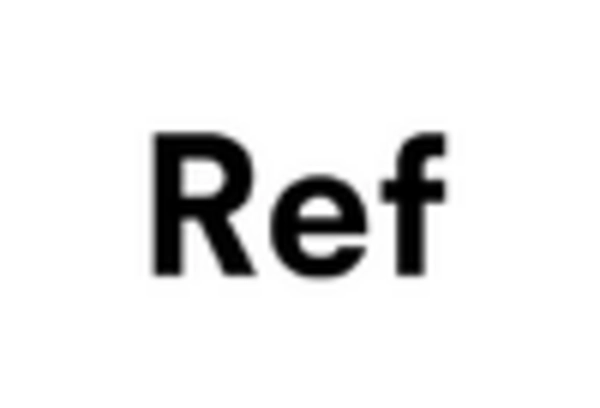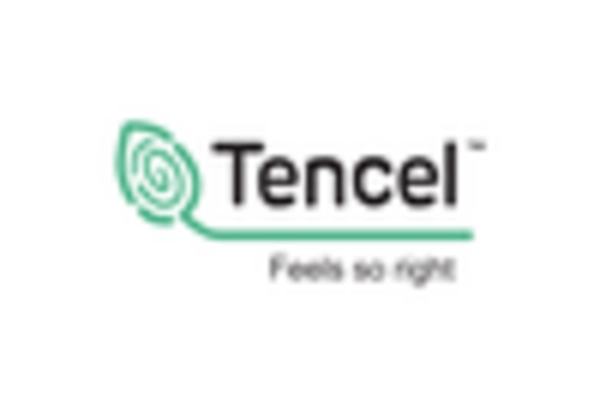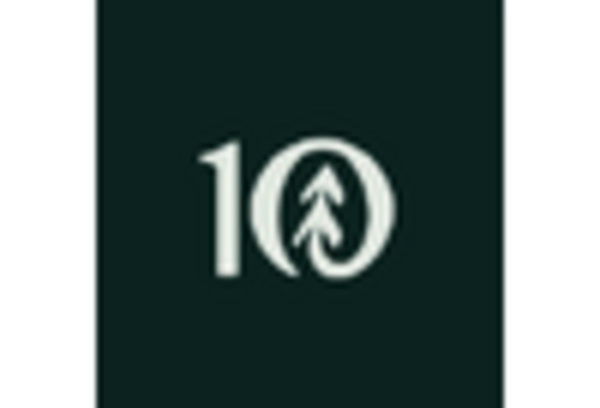The sustainable fabrics market is currently characterized by a dynamic competitive landscape, driven by increasing consumer awareness regarding environmental issues and a growing demand for eco-friendly products. Key players such as Patagonia (US), Eileen Fisher (US), and Tentree (CA) are at the forefront, each adopting distinct strategies to enhance their market presence. Patagonia (US) continues to emphasize innovation in sustainable materials, focusing on the development of recycled fabrics, while Eileen Fisher (US) is committed to circular fashion, promoting take-back programs and the use of organic materials. Tentree (CA) differentiates itself through its unique model of planting ten trees for every item sold, appealing to environmentally conscious consumers. Collectively, these strategies not only enhance brand loyalty but also shape a competitive environment that prioritizes sustainability and ethical practices.In terms of business tactics, companies are increasingly localizing manufacturing to reduce carbon footprints and optimize supply chains. The market appears moderately fragmented, with numerous players vying for consumer attention. However, the influence of major companies is substantial, as they set benchmarks for sustainability and innovation that smaller firms often strive to emulate. This competitive structure fosters a landscape where collaboration and partnerships are becoming essential for growth and market penetration.
In October Patagonia (US) announced a partnership with a leading textile recycling firm to enhance its fabric recycling capabilities. This strategic move is significant as it aligns with the company's commitment to reducing waste and promoting a circular economy. By improving its recycling processes, Patagonia (US) not only strengthens its sustainability credentials but also positions itself as a leader in the innovation of sustainable fabrics.
In September Eileen Fisher (US) launched a new initiative aimed at increasing the transparency of its supply chain. This initiative involves the use of blockchain technology to track the origins of its materials. The strategic importance of this move lies in its potential to build consumer trust and demonstrate accountability, which are increasingly critical factors in purchasing decisions. By enhancing transparency, Eileen Fisher (US) reinforces its brand ethos and appeals to a growing demographic of conscious consumers.
In August Tentree (CA) expanded its product line to include a new range of biodegradable fabrics. This expansion reflects a broader trend towards sustainable innovation and positions Tentree (CA) to capture a niche market segment that prioritizes environmental impact. The introduction of biodegradable options not only diversifies their offerings but also aligns with consumer preferences for products that minimize ecological footprints.
As of November the competitive trends in the sustainable fabrics market are increasingly defined by digitalization, sustainability, and the integration of advanced technologies such as AI. Strategic alliances are shaping the landscape, enabling companies to leverage shared resources and expertise. Looking ahead, competitive differentiation is likely to evolve from traditional price-based competition to a focus on innovation, technological advancements, and supply chain reliability. This shift underscores the importance of sustainability as a core business strategy, suggesting that companies that prioritize these elements will be better positioned for future success.


